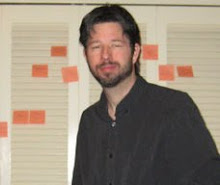Ego has its good side. If it weren’t for ego, we wouldn’t
push ourselves to do great work, whether it’s a powerful ad, a skyscraper, or something
more intangible, like inspirational teaching. Ego has other merits too. But it
has a dark side too, particularly when it comes to creative thinking in
advertising, particularly when it comes to group dynamics.
In a competitive advertising environment, people, good
people, want to get ahead; they want their work to stand out, to shine. One way
to do that is to not celebrate the creative ideas of others, particularly in
the fledgling stages of ideas when it’s easy to squash them. Competitive people
do this instinctually, almost subconsciously. These are often kind people,
whose biological drive for survival is steering their actions just a little at
a time. “That’s a great idea. It’s just too…” Serious. Whimsical. Intense.
Subdued. Difficult-to-grasp. Simplistic. Just fill-in-the-blank. One casual little
word to send that idea in a slight veer off to the graveyard of unrealized ads.
Ego can also push us in our attempt to create an aura of
perfection. It’s a shaky economy, folks, and jobs are precarious. You must look
flawless, right? You don’t make mistakes, right? And so, when our ego sees an
issue coming up that might make us look like we made a mistake, we start
deflecting and rationalizing, anything to create a stage where we did in fact make
no mistake.
To the first point, the idea of squashing new ideas, much
has been written on the dangers of that. Ideas often need room to breathe, to
grow a little, before we know what they’re capable of.
As to the second point, much also has been written on the
importance of being able to make mistakes and not feel immediately censured.
One environment grows big ideas. One grows stale ones lacking innovation.
As a freelance writer and an outsider, it’s often easier to
perceive how the dynamics of ego are preventing great ideas in a creative advertising
group than those that are in the thick of it, as it were. It would be
worthwhile, I would say, to take a step back as a team and look at your group
dynamics and see if you’re operating in a way that brings out the best ideas
you possibly can. And when you do it, be honest.


